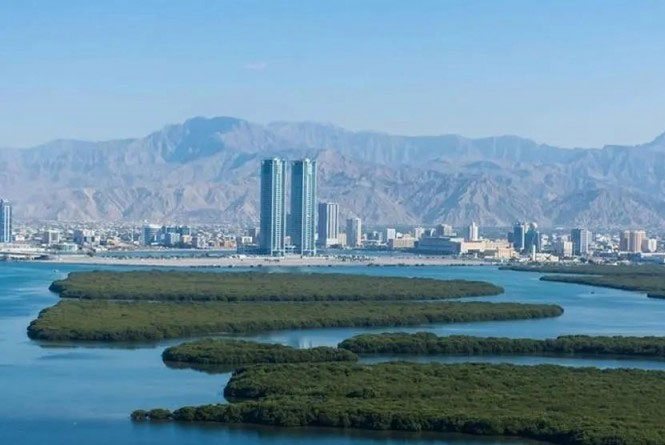Dubai has emerged as a global business hub, attracting entrepreneurs and investors from around the world. With its strategic location, tax incentives, and robust infrastructure, a new company setup in Dubai offers unparalleled opportunities for growth and expansion. Whether you're a startup founder or an established corporation, understanding the intricacies of establishing a business in this dynamic city is crucial. This article delves into five essential aspects of a new company setup in Dubai, providing a comprehensive overview to help you navigate the process smoothly. From legal frameworks to financial planning, we cover everything you need to know to make your venture a success. By the end, you'll have a clear roadmap for your entrepreneurial journey in one of the Middle East's most prosperous economies.

One of the first decisions you'll face during a new company setup in Dubai is selecting the appropriate business structure. This choice impacts everything from ownership and liability to operational flexibility. Dubai offers several options, including mainland companies, free zone entities, and offshore setups. Mainland companies allow you to operate anywhere in the UAE and engage in local trade, but they typically require a local sponsor who holds 51% ownership. However, recent reforms in certain sectors permit 100% foreign ownership, making it an attractive option for many. Free zones, on the other hand, provide 100% foreign ownership, tax exemptions, and streamlined processes, but they restrict business activities to within the zone or internationally. Popular free zones include Dubai Multi Commodities Centre (DMCC) and Jebel Ali Free Zone (JAFZA). Offshore companies are ideal for holding assets or conducting international business without a physical presence in Dubai. Each structure has its pros and cons, so it's essential to align your choice with your business goals, industry, and long-term vision. Consulting with a local business advisor can help you make an informed decision for your new company setup in Dubai.
Navigating the legal landscape is a critical step in any new company setup in Dubai. The process involves several stages, starting with initial approvals and ending with the issuance of trade licenses. First, you'll need to reserve your company name with the Department of Economic Development (DED) for mainland companies or the respective free zone authority. The name must comply with UAE naming conventions and not infringe on existing trademarks. Next, you'll submit necessary documents, such as passport copies, business plans, and ownership details. Depending on the business structure, you might also need to draft a Memorandum of Association (MOA) or Local Service Agent Agreement. Once approved, you'll obtain initial approval and proceed to secure a physical office space, as it's a mandatory requirement for most setups. After that, you'll apply for your trade license, which could be commercial, industrial, or professional, based on your activities. The entire process can take anywhere from a few days to several weeks, depending on the complexity and authority involved. It's advisable to work with a PRO (Public Relations Officer) or a business setup service to handle paperwork and liaise with government bodies. Staying compliant with local laws, including labor regulations and intellectual property rights, is vital for a smooth new company setup in Dubai.
Understanding the financial aspects is paramount for a sustainable new company setup in Dubai. One of the biggest draws is the tax-friendly environment; there's no personal income tax, and corporate tax is generally exempt for most businesses, though recent introductions of corporate tax at 9% for certain entities above a threshold require careful planning. However, free zones often offer long-term tax holidays and customs duty benefits. When budgeting for your new company setup in Dubai, consider costs like registration fees, license renewals, office rentals, and employee visas. These can range from AED 10,000 to AED 50,000 or more, depending on the structure and scale. Opening a corporate bank account is another crucial step, which requires submitting company documents and proof of address. Dubai's banking system is robust, but it can be stringent on anti-money laundering checks, so prepare for thorough due diligence. Additionally, consider currency fluctuations and international transfer fees if you're dealing with global transactions. Proper financial planning, including cash flow projections and tax consultations, will help you maximize profits and avoid pitfalls in your new company setup in Dubai.
A successful new company setup in Dubai hinges on thorough market research and a solid business plan. Dubai's economy is diverse, with key sectors including tourism, real estate, technology, and logistics. Conducting market analysis helps identify target audiences, competition, and demand for your products or services. For instance, if you're in the tech industry, Dubai's Smart City initiatives offer growth opportunities, while the hospitality sector benefits from the city's status as a tourist hotspot. Your business plan should outline your value proposition, marketing strategies, and financial projections. It's not just a document for registration; it's a roadmap for your operations. Include details on local consumer behavior, which often values luxury and convenience, and adapt your offerings accordingly. Networking with local business groups and attending trade fairs can provide valuable insights. Also, consider cultural factors, such as business etiquette and language, to build strong relationships. A well-researched plan reduces risks and increases the chances of success for your new company setup in Dubai, ensuring you're prepared for the competitive market.

After completing your new company setup in Dubai, the journey doesn't end—it's just the beginning. Leveraging post-setup support can drive growth and sustainability. Dubai offers various resources, such as government incentives for SMEs, innovation hubs, and export promotion programs. For example, the Dubai Chamber of Commerce provides networking events and advisory services to help businesses expand. Visa processing for employees and dependents is a key aspect; you can sponsor visas once your company is operational, which involves medical tests and Emirates ID applications. Additionally, investing in digital marketing and e-commerce platforms can tap into Dubai's high internet penetration rate. The city's infrastructure, including world-class ports and airports, facilitates international trade. As your business grows, explore opportunities in neighboring emirates or through Dubai's free zones for global reach. Regularly review your business performance and adapt to market changes to stay ahead. A proactive approach to post-setup activities ensures that your new company setup in Dubai thrives in the long run.
In conclusion, a new company setup in Dubai is a rewarding venture if approached with careful planning and execution. By focusing on the right business structure, legal compliance, financial strategies, market research, and post-setup growth, you can unlock the full potential of this vibrant economy. Remember, each step requires attention to detail, and seeking professional advice can streamline the process. With Dubai's business-friendly environment, your entrepreneurial dreams are within reach.
Q1: What are the main benefits of a new company setup in Dubai?
A1: The main benefits include tax exemptions in many sectors, 100% foreign ownership in free zones, a strategic location for global trade, world-class infrastructure, and access to a diverse, growing market. These factors make a new company setup in Dubai highly attractive for international investors.
Q2: How long does it typically take to complete a new company setup in Dubai?
A2: The timeline varies based on the business structure and authority, but it generally ranges from 1 to 4 weeks. Free zone setups are often faster, taking about 1-2 weeks, while mainland companies might take 2-4 weeks due to additional approvals.
Q3: What are the common costs involved in a new company setup in Dubai?
A3: Costs include government fees (AED 5,000 to AED 20,000), trade license fees (AED 10,000 to AED 30,000), office space rentals (AED 15,000 to AED 50,000 annually), and visa costs (around AED 3,000 per visa). Total expenses can vary widely depending on the scale and type of business.
Q4: Can I handle a new company setup in Dubai remotely?
A4: Yes, it's possible to handle it remotely by partnering with local business setup agents or PRO services. They can manage documentation, approvals, and other formalities on your behalf, though you may need to visit for certain steps like bank account opening or visa processing.
Q5: What types of licenses are available for a new company setup in Dubai?
A5: The main license types are commercial licenses for trading activities, industrial licenses for manufacturing, professional licenses for services, and tourism licenses for hospitality-related businesses. The choice depends on your business activities and is a key part of the registration process.










Zhuoxin Consulting relies on its Chinese service network and Dubai executive team to provide professional one-stop business services without communication barriers for Chinese companies to enter the Middle East market. Its business covers company establishment and maintenance, accounting and taxation, bank account opening, PRO services and business services.
Zhuoxin Consulting has high-quality business resources and maintains close cooperation with many free zones, bankers and tax departments in the UAE to escort your expansion in the Middle East market.
 Add WeChat
Add WeChat